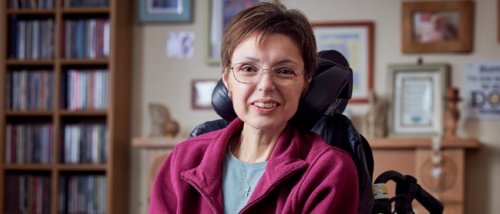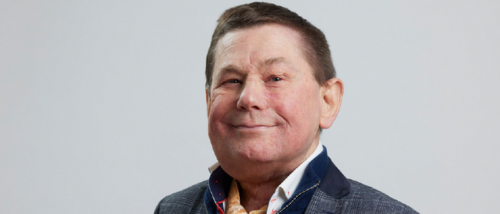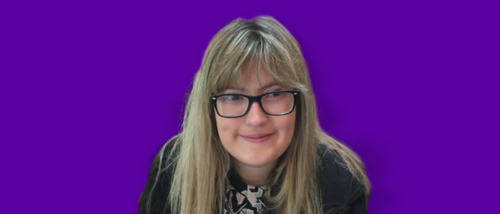- Home
- About us
- Delivering Everyday Equality
- Be financially secure
Be financially secure
Scope is determined to change the financial future for disabled people. We believe all disabled people should have the opportunity to work if they want to and have the right to a decent standard of living.
Life costs more for disabled people and their families. From buying and powering expensive, but vital, equipment to facing higher energy bills because of a health condition. The list of extra costs that disabled people face is staggering. The rising cost of living since the pandemic has only exacerbated this issue.
Campaigning on costs
Disability Price Tag
In 2023, we launched our latest Price Tag report. It shows that on average, disabled households need an extra £975 a month to have the same standard of living as non-disabled households.
And on average, the extra cost of disability is 63% of disabled households’ income. This leaves little room to afford a decent standard of living.
For over a decade, we have been tracking the extra costs facing disabled people through our Disability Price Tag research and we have been at the forefront of campaigning for change.
Our Price Tag figure has become well established and is regularly referenced by the government, academics and the media. 51 MPs from across parties signed a motion to submit the report for debate in the House of Commons.
Cost of living crisis campaign
Disabled people have been disproportionately hit by the rapidly increasing cost of living. In response, we launched a campaign calling for the Government to recognise the impact on disabled people and to do more to support them. It painted a devastating picture of how they are facing the brunt of the cost of living crisis.
Through our successful campaigning, we got the Chancellor and Prime Minister to recognise that life costs more if you are disabled. And to create specific disability cost of living payments for disabled people.
The government has committed to consulting on a social energy tariff and increased benefits in line with inflation.
Our campaign also contributed to a pause in the installation of energy pre-payment meters. Many disabled people are now prevented from having one installed forcibly in the future.
58,234 people and nearly 100 organisations signed our open letter to the Government calling for a social energy tariff. And 41 MPs signed a cross-party letter with our social tariff recommendation.
Supporting disabled people with the cost of living
Disability Energy Support
We launched our Disability Energy Support (DES) in November 2020. Our service offers free energy and water advice to disabled people.
- 14, 808 people were supported through our disability energy support and helpline service.
- We identified an estimated £2.7 million in savings for customers supported through the service.
- 185,416 people visited our energy advice pages.
- 78% of survey responses said that they found our energy advice pages to be helpful.
DES helpline customer
I was treated with utmost compassion and empathy. I was listened to without judgement. The advisor offered a variety of advice. It made me feel that I could call again and would receive the same level of support.”
Credit meter voucher scheme
We worked with UK Power Networks on a trial providing fuel vouchers to disabled customers who have credit meters.
- 2,094 fuel vouchers were issued to provide emergency support.
- 80% of recipients reported a positive impact on their mental health and wellbeing.
Voucher recipient
Thank you so much, my electric bill has almost doubled this quarter. Between the stress of bills and life, this voucher really did alleviate some of that stress and anxiety.
Anne's story

Anne has a Neurodegenerative congenital autoimmune disorder. She requires energy for electronic equipment to move independently. In 2021, Anne’s monthly energy bill almost doubled in one day.

It frightened the living daylights out of us. We had no warning. An extra £50 a month on energy. Things become pretty much impossible at that stage.
Anne was referred to our DES helpline. As a result, she has been placed on the Disability Priority Services Register with her energy supplier. She has had a smart meter fitted and she is applying for funds that she might be eligible for.

Without Scope’s Disability Energy Service, I wouldn't have the right information and resources. The adviser was calm and clear. They were very knowledgeable, reassuring and helpful, and everything was given in an accessible way for me. I really liked the email follow-ups too. I was really impressed.
Cost of breathing advert
A broadcast of our ‘Cost of breathing crisis’ advert reached over 2 million viewers.
In summer 2023, we worked with ITV to develop an advertising campaign showing the reality of extra costs for disabled families and how Scope is here to help.
The advert featured 6 disabled actors, in scenarios inspired by the thousands of devastating stories Scope has heard from disabled people.
The advert was developed with full captions and the option of audio descriptions, making it one of only a few accessible TV adverts.
Collaborating with utilities providers
We established our Scope Utilities Membership (SUM) in 2020, to bring together utilities companies with the aim of influencing them to improve their services for disabled customers.
SUM has two goals:
- to help reduce costs and improve utility services for disabled people
- tackle the everyday issues disabled people face paying for bills and accessing support services
Scope influences SUM members through sharing our research into disabled people's experiences, giving expert advice on accessibility and inclusion and sharing industry best practice through events and webinars.
SUM currently has 9 members, including utilities networks, water companies and energy suppliers.
Campaigning for a fairer benefits system
As a result of our Disability Benefits Without the Fight campaign, the government announced that they will run a trial, matching a person’s primary health condition to a specialist assessor.
Since 2021 we’ve been calling on the government to give disabled people the right to request an appropriate benefits assessor. Getting the wrong decision means that many disabled people must fight for the benefits they are entitled to.
- 30,000 people signed our petition and 47 MPs signed our cross-party letter supporting the campaign.
- 725 disabled people shared their views supporting our submission to the Welfare Green Paper.
Our work on employment
Disabled people are almost twice as likely to be unemployed as non-disabled people. There are one million talented disabled people who want to work but are overlooked because of outdated attitudes and discrimination.
We believe that every disabled person should have the opportunity to work if they want to. Through our tailored employment services, campaigning and partnerships with businesses, we support disabled people to get into, stay in and progress in work.
#WorkWithMe
1 million disabled people were reached in their quest to find work through our Work with Me initiative, in partnership with Virgin Media.
The scheme ran from 2017 to 2020 and encouraged employers to become more inclusive.
- Over 100 businesses joined our community and committed to taking accountability for disability inclusion in their businesses.
- 85% said that our resources helped them feel more confident taking positive action on disability inclusion.
Our employment services
Our employment services supported 8,147 disabled people to move closer to or get into work.
We offer a range of employment services including:
- Support to Work
- Kickstart
- Starting Line
- Career Pathways
- Working on wellbeing
- Learn at Scope
Support to Work
4,030 disabled people used our Support to Work programme.
Support to Work is a free support programme for disabled people who are looking for paid work. The programme launched in September 2017.
Support to work customer
I can't praise the advisor and this service enough. Before I started I honestly thought I'd never work again. I'd lost so much confidence in my abilities. Now I have found a well-paid job that I think I will enjoy with hours that suit me.
Andy's story

In 2017, an operation on his throat impacted Andy’s ability to communicate verbally. In September 2021, the pandemic meant Andy was made redundant from his job of 20 years.
Andy assumed he’d find a new job quickly. But it soon became clear that this was not the case.

I had never really seen myself as disabled, so I wasn’t sure if I would qualify for Scope’s Support to Work scheme. But I received a very swift response saying I most definitely qualified. My adviser was really supportive. I had many of the skills, but the mentoring helped me to see where I should focus my energies. I was soon feeling a lot more confident.
Andy's story
Andy's Support to Work advisor connected him with an organisation that was recruiting. He received an interview, and he got the job.

The role is fantastic. The colleagues I have met are extremely friendly and the atmosphere in the office is great. If anyone out there is disabled – or thinks they could be – and wants work, the first port of call must be Support to Work. And the best bit? It doesn’t cost you a penny!
Kickstart
Our Kickstart service supported 841 people to achieve their career goals.
Kickstart is a one-to-one support programme for disabled people who are applying for jobs. It was launched in September 2017.
Kickstart Customer
It felt really validating to have someone take into account my disabilities without judgement and think really carefully about what may or may not be suitable for me.
Working on wellbeing
Our Working on Wellbeing service offers employment training and support to disabled people in Wales.
472 disabled people were reached between April 2020 and March 2023.
An additional 366 people were reached through our expansion partners, Legacy in the Community, Whitehead Ross, Resource Wales and Disability Can Do, who joined us to deliver the service.
Bethany's story

Bethany is 21 and has dyscalculia, dyspraxia and dyslexia. Because of her conditions, she struggled in previous employment, experiencing negative attitudes and poor support from employers.

I found out about Scope’s Working on Wellbeing service through my job centre. My employment adviser was really supportive and patient. She didn’t make me feel like I’d done a bad job when we looked at my CV. The changes she made were really helpful. After talking to her, I felt a lot more confident about the types of jobs I was applying for. And I felt a bit more confident in myself. I never would have applied for retail work because my anxiety was too bad, I couldn’t deal with busy customers. But I feel like I’m in a much better place and I feel a lot more confident now, so I applied for it and I got the job.
Learn at Scope
302 courses were completed on our Learn at Scope platform between August 2022 and March 2023.
The platform has supported disabled people to apply for jobs and find employment in a variety of roles including HR administration, healthcare assistant, mental health adviser, animal technician and many more.
Learn at Scope is a free, customer focused, interactive eLearning platform that was created in collaboration with disabled people.
It offers tailored employment and skills-focused courses designed for disabled people. And includes guidance on topics such as confidence and assertiveness, writing cover letters and how to talk about disability.
Collaborating with employers
We collaborate with employers to improve workplace policies, practice and culture so that disabled employees are better supported at work and experience improved attitudes in the workplace.
Scope for Business
31,157 people visited our Scope for Business website since it launched in November 2022 and 1,391 people attended our training sessions.
Scope for Business provides everything that businesses need to be more accessible and inclusive for disabled people.
We have delivered accessibility training to a diverse range of organisations including the Natural History Museum and Bumble.
Workplace disability inclusion programme
2,417 people were trained to be more inclusive in the way they recruit, retain and progress disabled employees.
Our workplace disability inclusion programme (previously named ‘Get Inclusive’) ran 80 workplace disability inclusion training sessions, supporting organisations to build a culture of disability inclusion.
Growth Impact Fund
This year, Scope became a contributor to Big Issue Invest and UnLtd’s Growth Impact Fund (GIF). The fund will invest in innovative, disabled-led businesses that create jobs, products and services for disabled people. As well as other social purpose businesses that are led by and benefit other underrepresented groups. It aims to create 85,000 meaningful and sustainable jobs and 105,000 training opportunities within five years.
Campaigning on employment
Disability Reporting Framework
In 2018 we successfully influenced the Government in the development of a new disability reporting framework, which makes large employers more accountable.
We want to make sure that employers report on the number of disabled colleagues they have, and how they are progressing.
The disability employment gap
We published our disability employment gap map to highlight to MPs the scale of the problem in their constituencies. We shared personal experiences from 300 disabled campaigners and provided evidence to the Work and Pensions Committee for their inquiry into the DEG.
The disability employment gap is the difference between how many disabled people are in work compared to how many non-disabled people are in work. The gap has stubbornly remained at around 30 percentage points for over a decade. At Scope, we are passionate about bringing this scandal to an end.
Stuck: Reform sick pay
In 2020, we joined mental health charity Mind in calling for a modern sick pay system that is flexible and fair for disabled people and people with mental health issues.
27,873 people and 25 organisations signed our petition calling for improvements to the Statutory Sick Pay (SSP) system.
We also submitted a consultation response, with 85 disabled people contributing their experiences of being on SSP to support it.
Employee retention
In 2023, we published research exploring why disabled people fall out of work twice as often as non-disabled people.
We heard from 1,000 disabled people who have left their jobs and 250 employers to understand what organisations are doing, or not doing, to support disabled staff.
Over 100 employers and policymakers attended our report launch event and we’ll be continuing this campaign.


